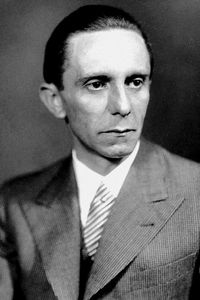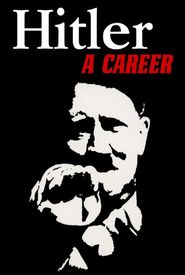Josef Goebbels, the German politician and propagandist, would briefly become the leader of Nazi Germany during World War II. Born in the German Rhineland to strict Catholic parents, Goebbels was short and had a club foot, which he wore a brace for. He was rejected by the German army in World War I due to his physical condition.
After Germany's defeat, Goebbels joined the National Socialist Workers Party, also known as the Nazi party, which opposed the democratic Weimar Republic. He met Adolf Hitler in 1925 and initially tried to expel him, but later changed his tune when Hitler rose to power. Goebbels became the Nazi district leader of Berlin and waged year-round political campaigns, eventually draining the organization of its funds.
Goebbels married divorcée Magda Quandt and had six children with her. He was known for his impressive oratorical skills and ability to slant arguments to his view, which made him an ideal leader in the Nazi party. He was named minister of entertainment and propaganda, giving him sole discretion over what media outlets could print, say, or show.
Goebbels searched for a director to head Germany's leading film studio, UFA, and offered the position to Fritz Lang, but Lang fled the country after being told that he would decide who was Jewish. Lang was replaced by Leni Riefenstahl, who directed two documentaries on the Nazi party's Nuremberg rallies. Goebbels assisted Riefenstahl extensively on her second documentary, "Triumph of the Will," which became a success worldwide.
After World War II broke out, Goebbels created a massive propaganda body of work for the German government, using posters from French and German movies with Jewish stars as examples of the "typical Jew." He used almost anything for propaganda purposes and continued to do so until the end of the war.
As Allied forces closed in on Berlin, Goebbels became the next in command after Hitler's suicide and was given the title of "Defender of Berlin." He was well aware of the fate he would meet if he were captured alive and reluctantly endorsed a plan to poison his six children with morphine and cyanide. Later that day, he shot his wife and then took his own life. Soviet troops found his body and that of his wife, partially burnt and unburied, outside the Fuhrerbunker.













































